The people with more stuff than they have room for
- Published
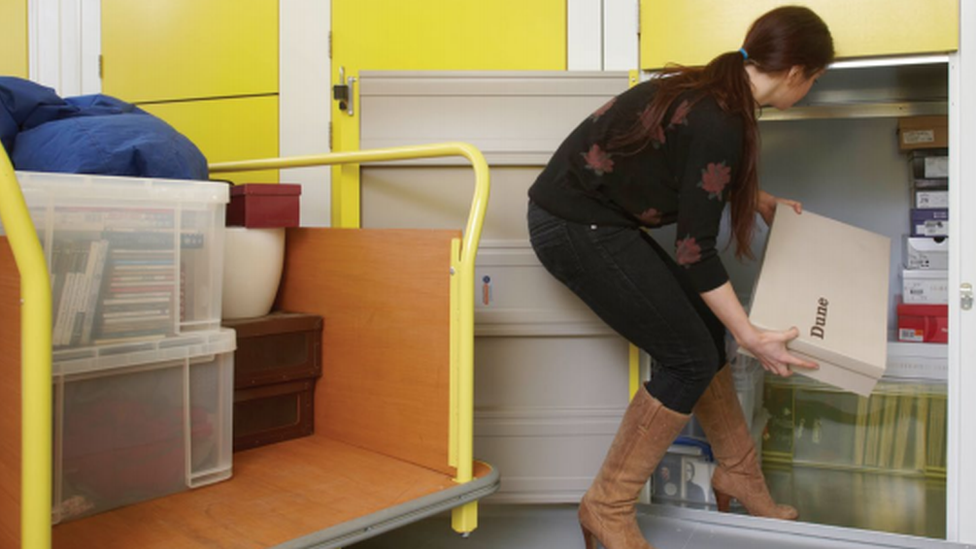
The high cost of housing has helped to create a boom in self-storage with many people now renting self-storage units long term because their home is too small.
"It's a bit of a rip-off really," laughs Angela Andrew, talking about the £120 she pays a month for a self-storage unit in east London.
In the unit, which is packed to the roof with boxes and bags, she keeps her collection of records, costumes from her work as a performing artist and other stuff such as old gas heaters. The items may not have monetary value, but they have "nostalgic value", she says.
"I wouldn't say I'm a hoarder, but I do see value in stuff."
When she took out the space, Angela expected to keep it for a year, but she's now had it for two years and uses the unit to supplement her small living space.
"The amount of money I pay to sub-let plus this works out at a normal monthly rent," she says.
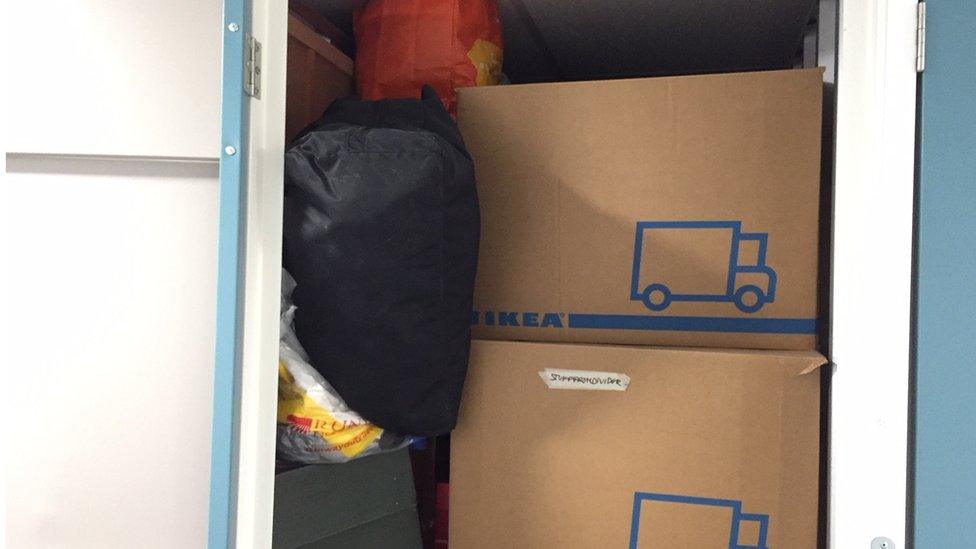
Angela Andrew pays around £120 a month for this unit
For Angela, self-storage is about more than not being able to part with items, it has also given her some security. When she started using the unit she had no permanent living space and it was a way for her to keep all her things in one place.
"This little box is also my home," she says.
Angela is not the only person willing to shell out for extra space to store her things.
There are now around 1,500 self-storage sites in the UK, with use of them up almost 9% last year on 2016, according to the most recent industry figures from the Self-Storage Association UK (SSA).
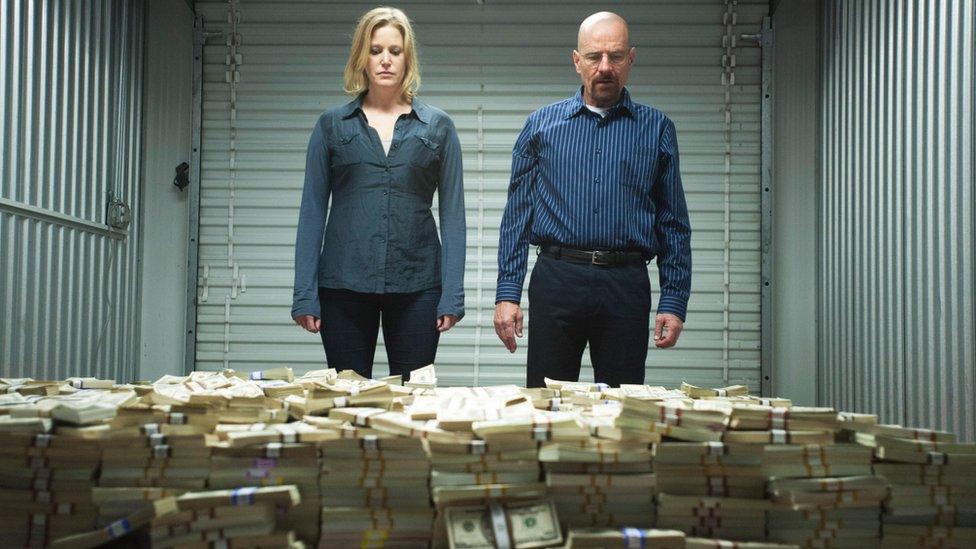
Cash stash: In Breaking Bad self-storage was used to hide the illicit gains from a crystal meth lab
The industry's reputation has been shaped by TV and films, where they're often used as a hiding place for a dead body or stolen goods.
In horror film Silence of the Lambs, serial killer Hannibal Lecter uses one to store a severed head, whilst in cult TV series Breaking Bad a unit was used to stash the illicit gains from a crystal meth lab. Even on the reality TV show Storage Hunters, snakes and a naked man have been stashed away in units.
The reality is much more prosaic. The contents of these giant warehouses, which loom over busy road junctions or are situated in industrial parks, are typically the mundane realities of day-to-day life - cooking equipment, spare mattresses, books or bikes.
Most people turn to them at a significant junction in their lives - they've had a child, got married, separated or divorced, or they're moving house or redecorating and they need somewhere to store their stuff temporarily.
But for an increasing number of people, like Angela, self-storage has become a longer term option. Almost a third of customers have had their unit for over three years. And over a quarter of users (27%) say they use storage because there is no room for the items where they live.
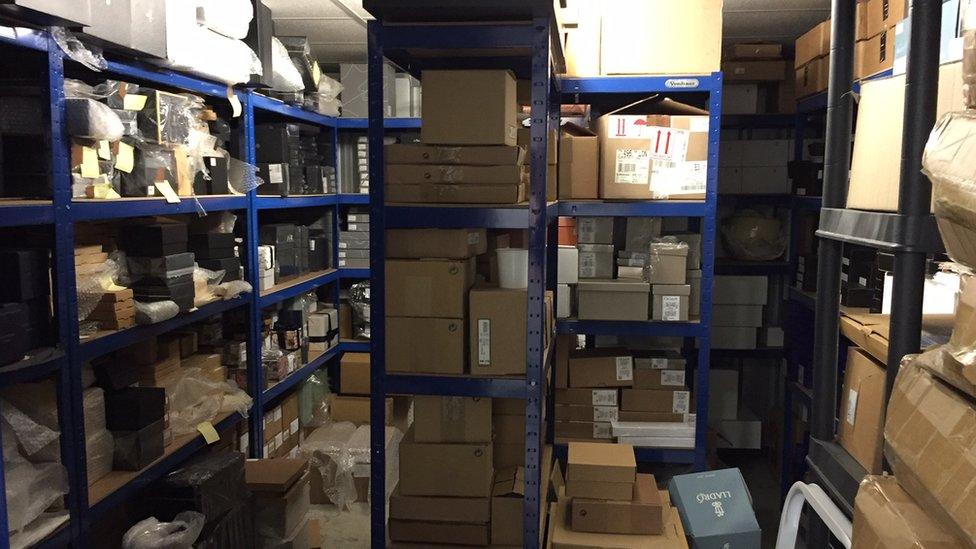
Self-storage is cheaper than renting or buying a larger home
The average household in the UK is 2.4 persons, larger than both Germany and France, yet we have the smallest average property size, making the UK population "one of the most squeezed in Europe", according to the SSA.
So it's not surprising that people are turning to self-storage, with it cheaper to rent extra space than it is to buy or rent a bigger home, says Rennie Schafer, chief executive of the SSA.
A "room away from home" is how he describes it.
"People know their stuff is safe and with most self-storage units offering 24-hour access they can get to their goods whenever they want to."
But it's not cheap. Mr Schafer estimates "as a very general guide" that a 90-sq-ft unit, which would easily accommodate the contents of a three-bedroom house, would be around £150-£200 per month in London and £100-£150 per month in the North of England.

Frederic de Ryckman de Betz says he wishes he'd held on to more of his mother's things
Shouldn't people just get rid of things?
"It's human nature to hoard and keep things," says Frederic de Ryckman de Betz, the founder and owner of Attic Self Storage.
He says the number of "lifestyle customers" who are keeping storage long term are increasing.
"People might discover it when they move house, but once they move in and it's all nice and clean the last thing they want to do is clutter it all up, so they leave their stuff in storage."
'I wish I'd kept more'
Mr De Ryckman de Betz discovered the industry when a relative died in Belgium and he had to deal with their belongings. He used it again when his mother died.
He only used self-storage temporarily, but now wishes he had kept the unit for longer.
This would have given him time to realise the emotional value of some of his mother's items, such as her collection of dresses from the 1960s, he says.
"When you experience a loss like that you're not in the right place to make those decisions. With the benefit of hindsight I wish I'd kept more."
But the fact that he struggled to find an available unit and that, when he did, the rent on it was put up twice in just 18 months made him realise it was an attractive industry.
"The more I looked into it, the more I realised it was a good sector, a growing business," he says.
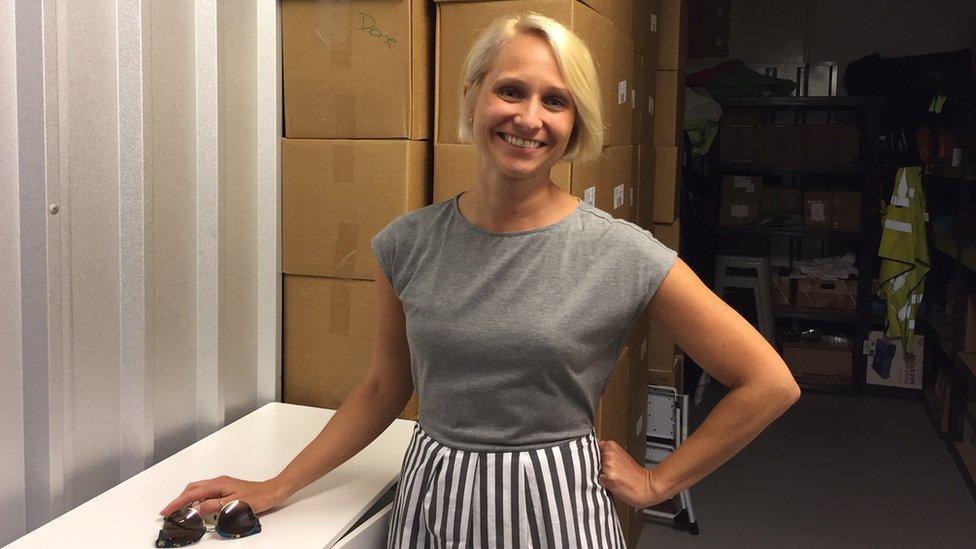
Julia Weiland rents a self-storage unit across the road from her office
It's not just individuals driving the self-storage boom.
Around a quarter of self-storage users are small businesses, attracted by the fact they don't have to commit for a long period. Typically you can leave with just a month's notice and crucially you don't need to pay business rates on the premises.
They too often use self-storage to supplement more expensive office space.
Julia Weiland runs a direct marketing agency specialising in events. She has an office across the road from the self-storage unit we meet at, but still rents a unit to store clients' props and samples.
"It's just much more convenient. We wouldn't be able to store the stuff for all our different clients in the office."
She is trying to grow the business and says eventually it will "probably come to a point where it will make financial sense to have something a bit more permanent".
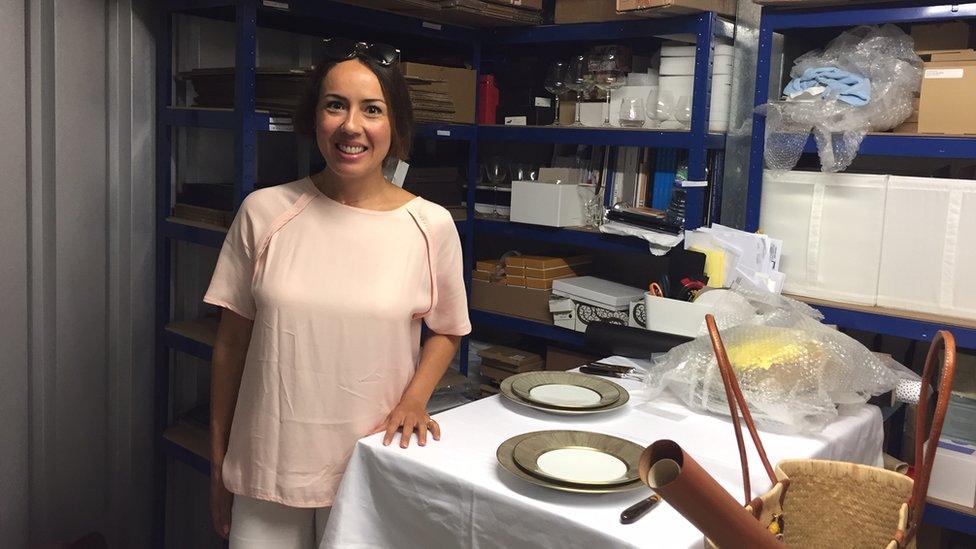
Gemma says she feels safe to visit late at night
Gemma uses two self-storage units to keep all her stock for her wholesale business which supplies high-end dining and tableware wholesale.
She initially considered a warehouse instead, but said self-storage offered more "scalability".
"I started with a small unit and then kept on growing. It would also work the other way around. If I needed to cut costs I could do so very quickly."
Even if clients like Julia and Gemma move on, Mr de Ryckman de Betz is confident they will be easily replaced.
He points out that self-storage is hugely popular in the US despite the fact that people's homes tend to be larger.
"It's the great contradiction of self-storage to think that it's for people without enough space. The more space you have, the more you're going to keep," he says.